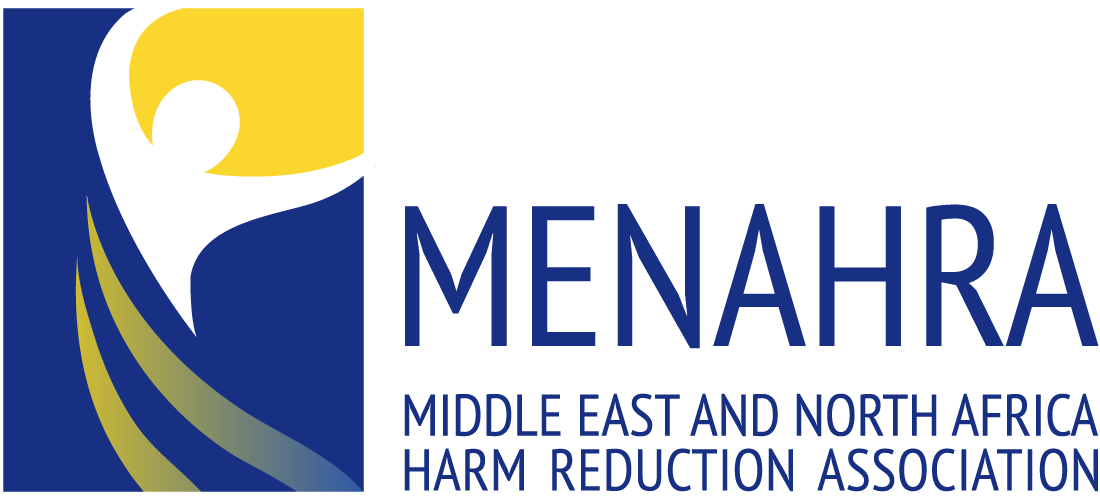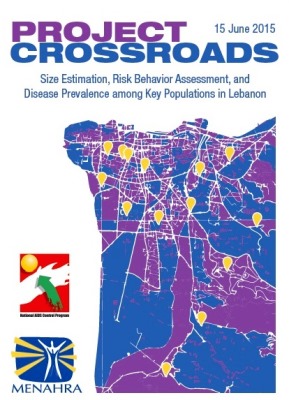In collaboration with the National AIDS Control Program and through the support of the Global Fund to Fight AIDS, Tuberculosis, and Malaria, the Middle East and North Africa Harm Reduction Association (MENAHRA) launched the results of “Project Crossroads”: Size Estimation, Risk Behavior Assessment, and Disease Prevalence among Key Population in Lebanon.
This scientific research aimed to assess the bio-behavioral situation of HIV and Hepatitis C (HCV) among people who inject drugs (PWID) and men who have sex with men (MSM) in Lebanon. The study was conducted by consultants recruited from Yale University who presented the results on August 5th. The launching was attended by numerous national and international stakeholders and partners including representatives from: the World Health Organization, the Ministries of Public Health, Interior, and Social Affairs, health care, social, and rehab centers, universities, civil society organizations, activists, members of key populations, the President of the Order of Nurses, and religious leaders.
In his opening speech, the MENAHRA Executive Director, Mr. Elie Aaraj, stated that this study will help decision makers and civil society organization in advancing services for key populations and reducing harm. The President of the Order of Nurses, Dr. Nouhad Yazbek Doumit, stated that the order of nurses is pleased to host this launching and expressed their willingness to collaborate on future projects. Manager of the National AIDS Control Program, Dr. Mostafa Al Nakib stated that they are going to base their future plans upon the results of this study and that this study will have a positive effect on expanding the services that are available for key populations.
The consultants on the study, Dr. Robert Heimer and Dr. Kaveh Khosnood, presented the findings of the study as well as recommendations for improving policies and possible future research including:
– Continued outreach is necessary for both populations to provide HIV (and HCV) prevention education, access to sterile syringes and condoms, HBV vaccination, and medical care for those infected with HCV.
– Overdose prevention and response training for PWID is needed to reduce the frequency of opioid overdose events. Facilitation of the anti-overdose medication, Naloxone, is needed for the national response.
– More research is needed to study PWID and MSM populations outside of the greater Beirut area, women PWID, and displaced populations residing in Lebanon.
– Active surveillance of HIV and HCV must continue and be actively linked to medical care provision.
– Social marketing to reduce stigma directed against PWID and MSM populations should be considered.
A questions and answers session was held after the initial presentation for further clarifications including discussion with the study’s field workers. In his closing session, Mr. Elie Aaraj acknowledged all those who contributed to the success of this project with the hopes that the results of this study will expand the services available to key populations in the country. Finally, Mr. Aaraj stated that MENAHRA is prepared to collaborate and provide support to all harm reduction related projects.

